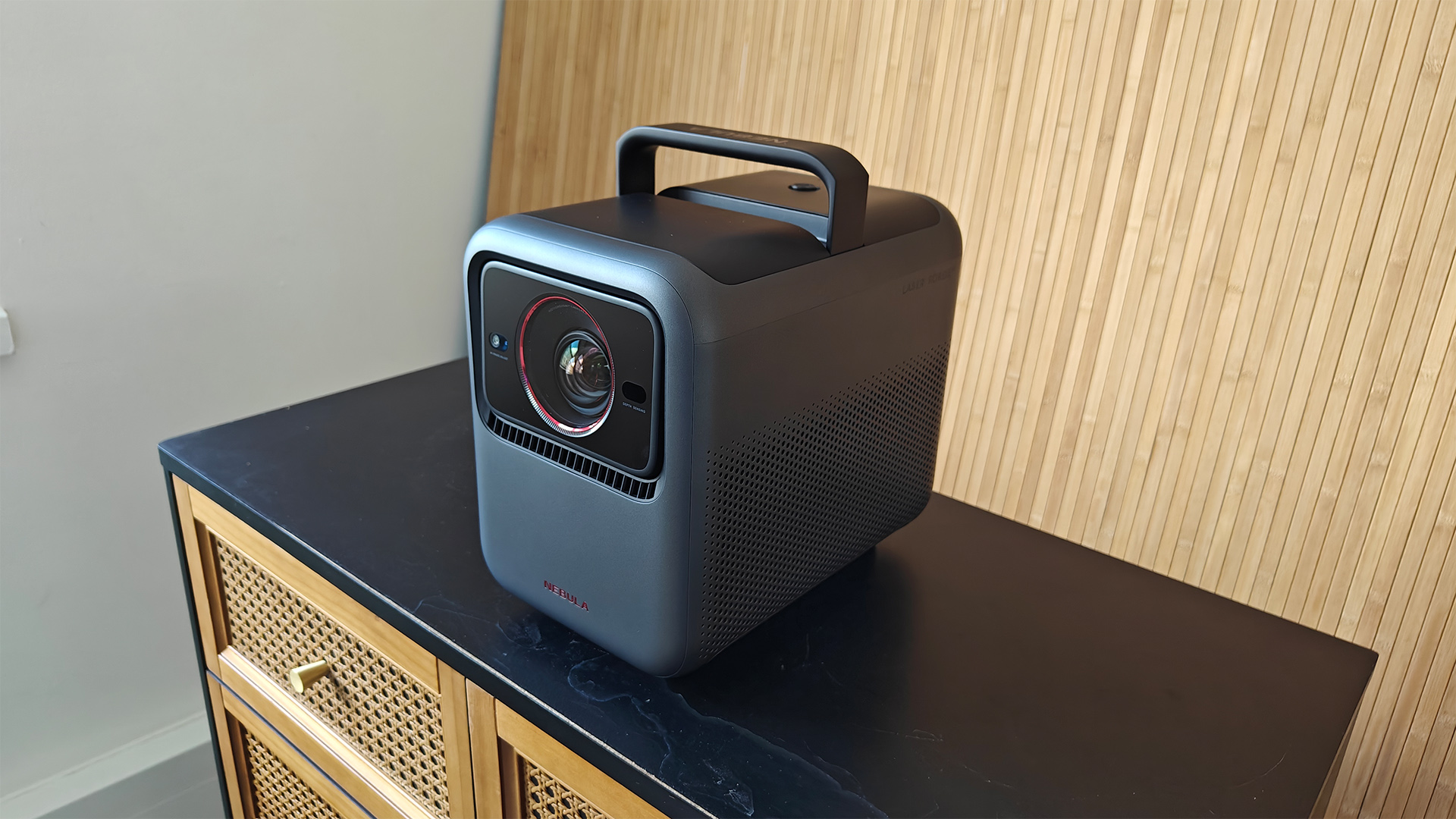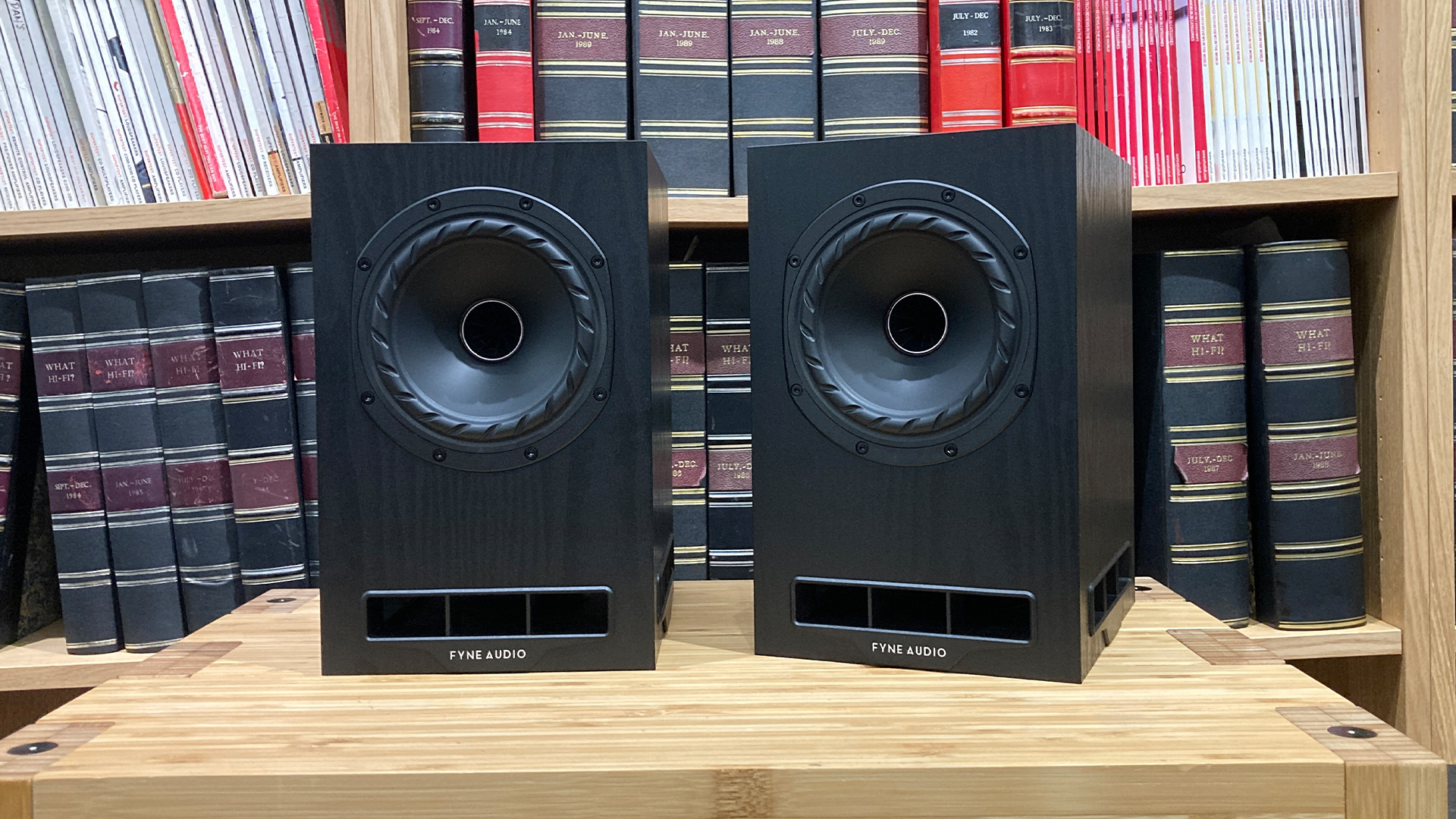What Hi-Fi? Verdict
With a class-leading audio performance and immersive picture, the Nebula X1 spells tough competition for rivals
Pros
- +
Rich and clear sound
- +
Vibrant and three dimensional picture
- +
Simple set-up
Cons
- -
Noisy picture at times
- -
Inconsistent motion handling
- -
Hefty design
Why you can trust What Hi-Fi?
Nebula has produced a reliable stream of projectors over the last few years, from portable models such as the four-star Anker Nebula Mars 3 Air to pricier purchases such as the Cosmos Laser 4K projector.
Now, Nebula, which is owned by Anker, is launching another 4K projector that it says is a “cinema-grade outdoor entertainment system”.
The Nebula X1's (supposedly) portable design and easy set-up mean it could be ideal for indoor and outdoor movie screenings.
However, a glance at the specs sheet reveals the projector requires a constant mains connection and is much larger and heavier than most people would consider to be really portable.
In our minds, therefore, this is more of a 'coffee table projector' that can be fairly easily moved between rooms, packed away in a cupboard and brought out for epic movie nights. But, sure, it can also be used in the garden if you have a long extension cable.
Categorisation is tricky, then, but it’s much less important than the performance, which is in many ways very good.
Price
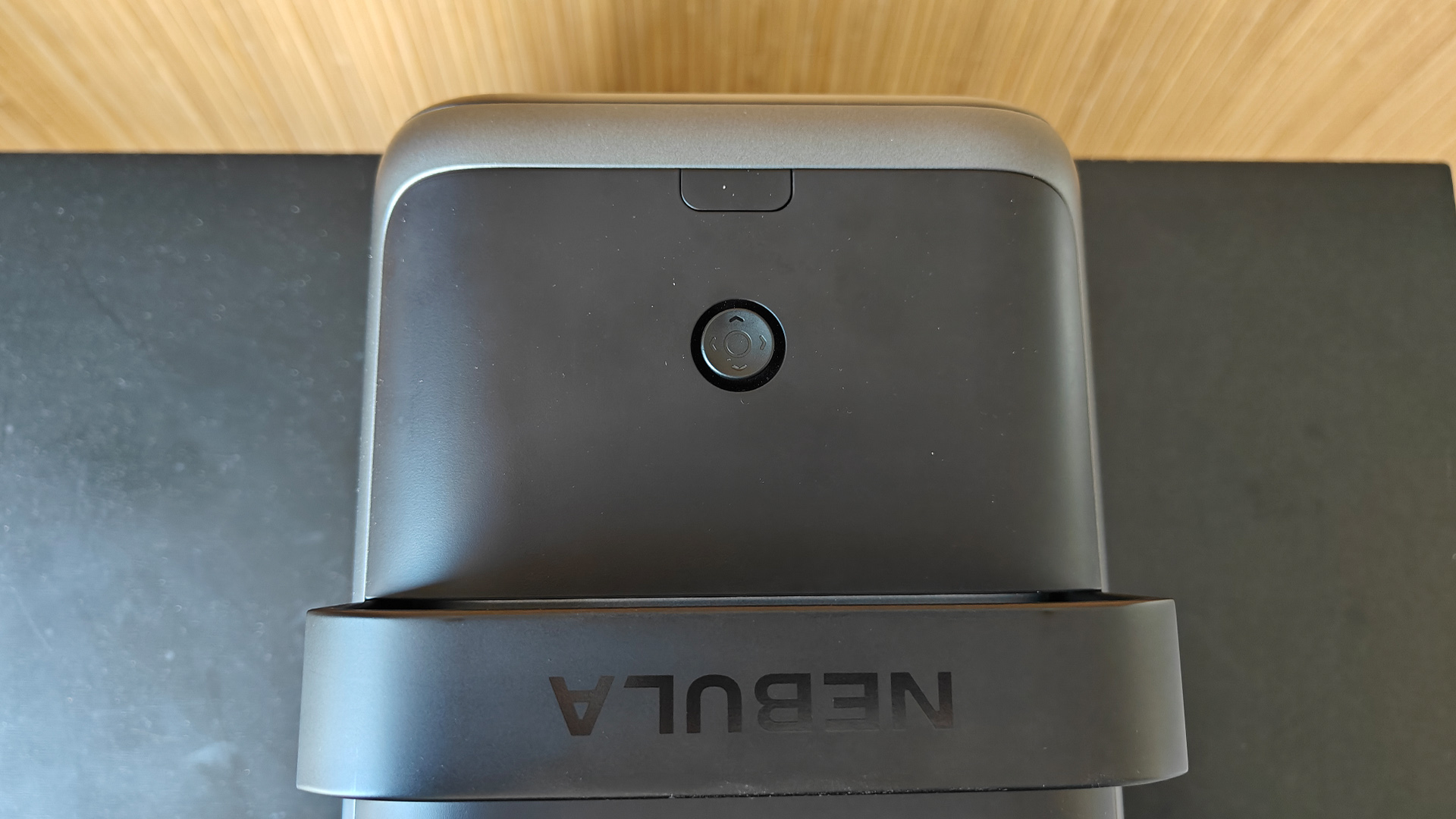
The Nebula X1 is available for £2200 / $2999 (around AU$4550).
The latest hi-fi, home cinema and tech news, reviews, buying advice and deals, direct to your inbox.
There’s also an ‘accessory pack’ that includes two wireless satellite speakers, a carry case and two wireless microphones for £500 / $999.
The price for the projector alone pits it against premium models such as the BenQ X3100i (£2099 / $2399 / AU$3599), which earned a What Hi-Fi? Award last year for its all-round picture performance.
While the BenQ and Nebula are styled quite differently, they’re overall very similar semi-portable projector propositions.
If it’s a true portable projector that you’re after, you’re better off looking at much smaller, battery-operated alternatives such as Nebula’s own Mars 3 Air or BenQ GV31, which cost £550 / $600 / AU$1300 and £449 / $599 / AU$999 respectively.
Build
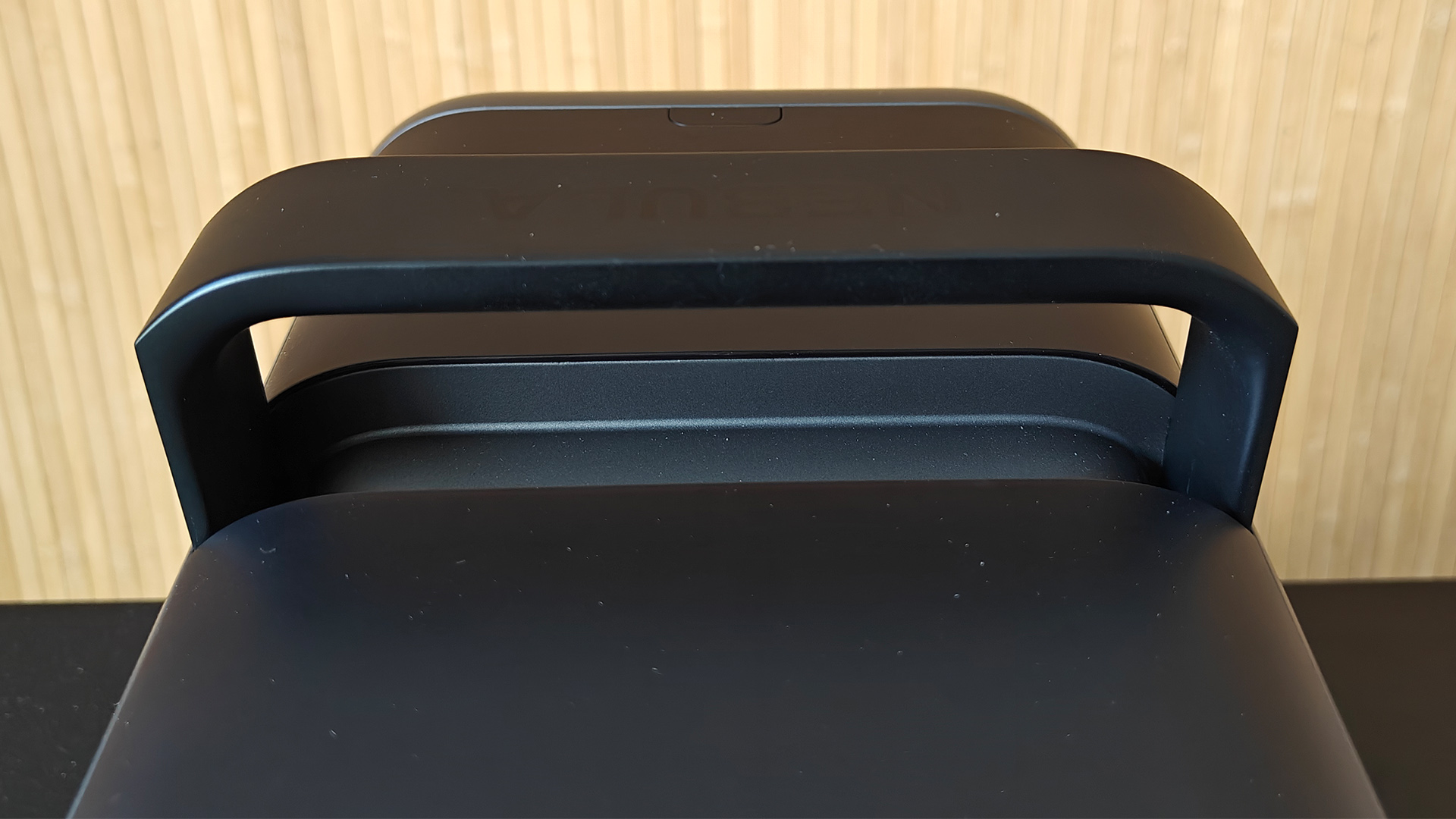
The X1 has a smart and nifty design that includes a bucket-like handle that can be activated by pushing it down. It is available in one colour: a light yet metallic-looking grey.
The projector measures 24 x 19 x 28cm and weighs 6.2kg. While that is of course heavier than properly portable projectors, it is light enough to carry around for a short distance.
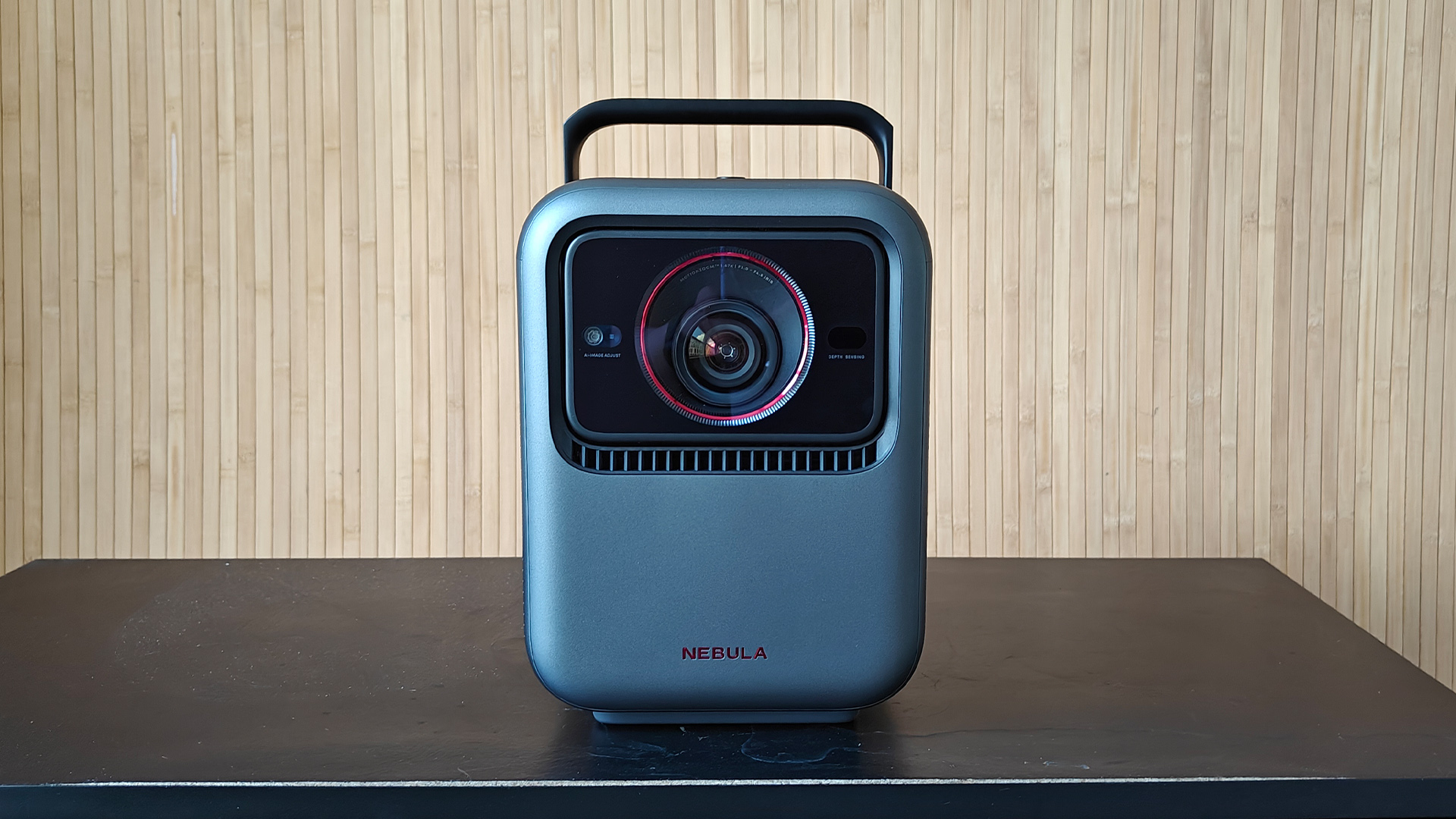
Resolution 4K (3840 x 2160)
HDR Dolby Vision, HDR10
Light source RGB laser
Operating system Google TV
Picture size 80 to 300 inches (claimed)
Contrast 5000:1 (claimed)
Brightness 3500 ANSI Lumens (claimed)
HDMI HDMI 2.1 (eARC), HDMI 2.1, Audio-Optical
The projector can be placed on a projector stand, table, or the floor, with an optical engine and lens array that then tilts up to 25 degrees. There is an add-on gimbal you can buy as an extra stand for the projector, but it will set you back a further £120 / $179.
The remote control is intuitive to use, helped massively by the addition of backlight buttons to make navigation easier in the dark.
On the top of the projector is a touch screen from which you can control volume, power, and begin keystone correction. There’s also a toggle button so you can navigate the menu without the remote.
Sci-fi nerds will also be pleased at the addition of a Battlestar Galactica-esque red light that appears on the top when the projector is turned on.
Features
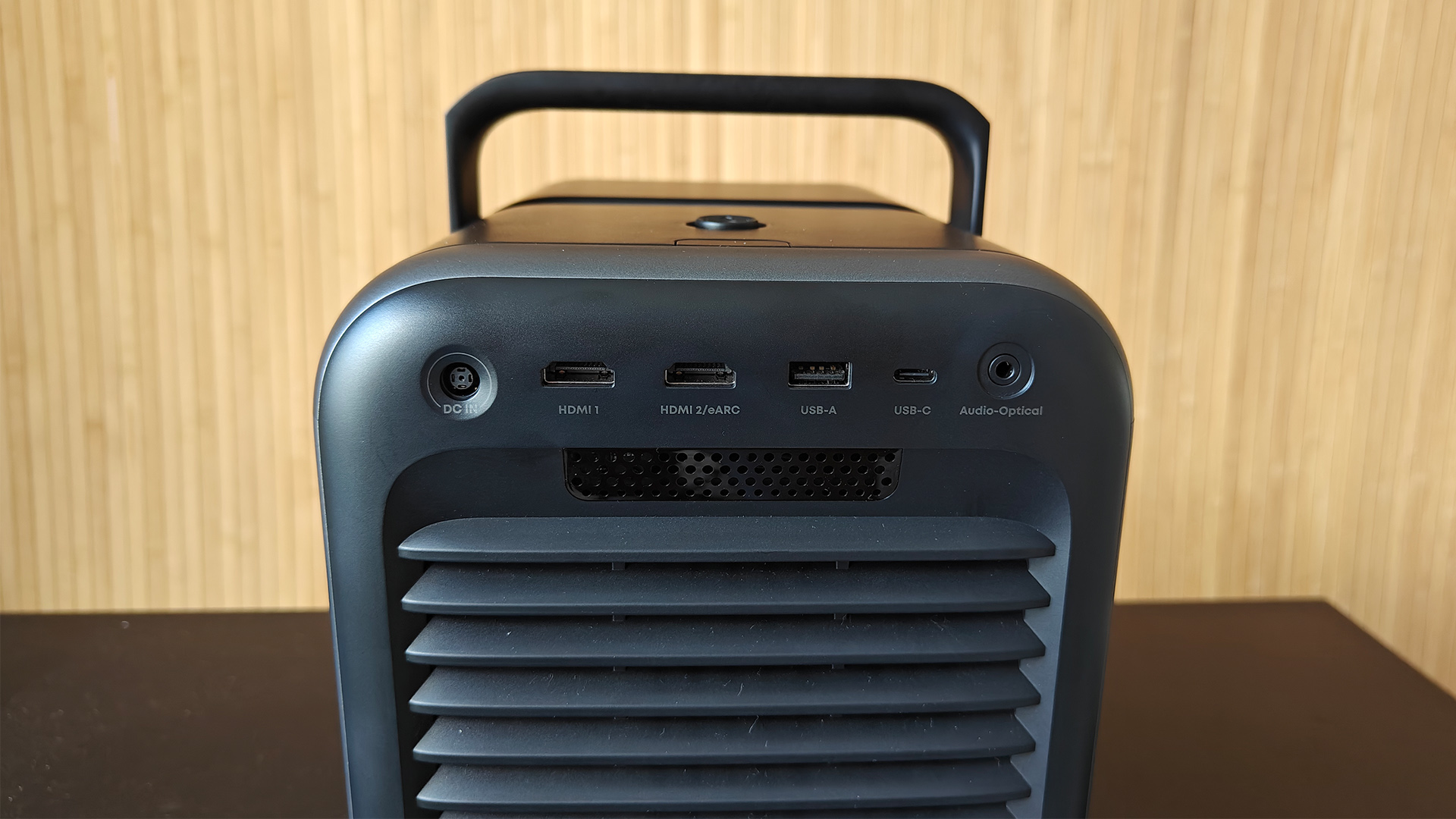
The triple-laser X1 projector boasts a 4K resolution, a claimed 3500 ANSI lumens of brightness and it can supposedly project an image up to 300 inches in size.
Nebula is also employing some AI smarts to make the set-up supposedly simpler. The brand’s AI Spatial Adaptation auto set-up includes real-time autofocus, keystone correction, ambient light adaptation and wall colour adaptation, which can all be switched on via the remote control.
We use it to fit the picture to our screen, and while some adjusting is required, the AI does a good job of understanding the space around it.
There is also a Spatial Recall feature, so the Nebula X1 can remember your preferred settings for selected spaces to make set-up easier.
In terms of streaming capabilities, the Nebula projector features the Google TV platform with Netflix built in. You can choose to download all the usual suspects, including Channel 4, Disney+, YouTube, Apple TV+, Netflix, ITVX and Amazon Prime Video. BBC iPlayer is not available, though you can at least cast it to the projector from your phone as a workaround.
If you want to connect to a gaming system or Blu-ray player, the X1 also has two HDMI ports on the rear, including one with eARC for use with an external sound system.
The projector has an internal liquid cooling system, which Nebula says helps keep noise to a whisper-like 26dB. While using the projector, the system is indeed impressively quiet, barely audible in fact.
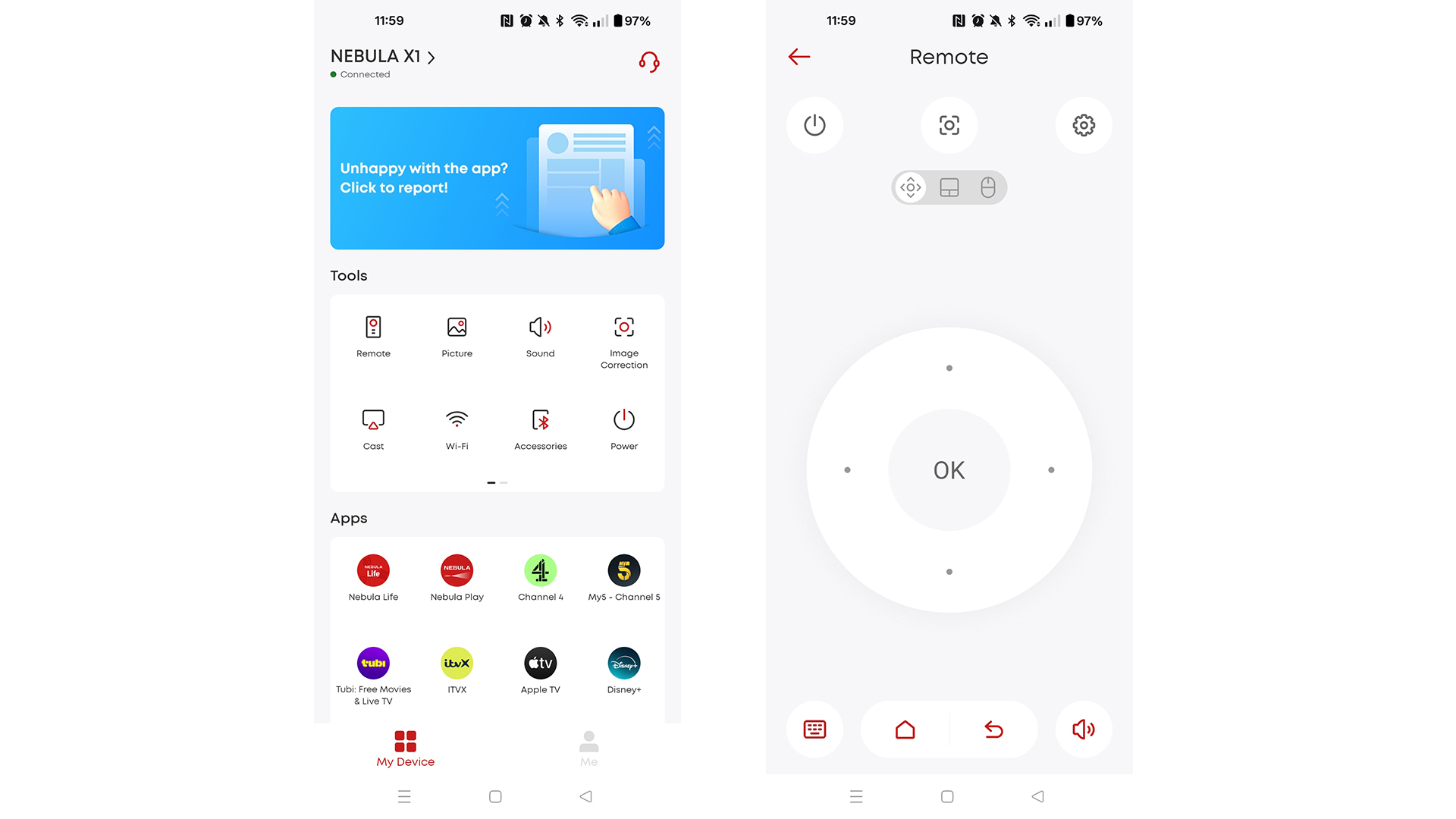
When it comes to the picture modes on offer, the X1 offers a whole host of options.
First up, the brand’s own NebulaMaster mode can “improve contrast with enriched details in both bright and dark areas of the image”, according to the company. However, while we find that this mode does boost the brightness, the image also takes on a pale hue that is lacking cinematic warmth.
Standard mode has this same paleness, but it’s also lacking the enhanced detail of NebulaMaster, so we feel it’s best avoided. There is a Sports mode, which heightens the highlights in the image, and a Vivid mode brightens the picture even more, but at the expense of dark detail.
There are Day and Night modes calibrated by the ISF (Imaging Science Foundation), which do tailor the image to these different environments with adjusted brightness levels, but they also tend to flatten the image and make it less engaging.
Our preference is the Movie mode, which offers the most balanced presentation in terms of colour and detail, and gives us the most cinematic picture.
For gamers, there are Standard and Extreme gaming picture modes to choose from.
If all that is not enough for you, there are also several sound modes to choose from. For testing, we stick with the Movie sound preset due to its wide sense of space and its vocal clarity.
There is also a Music mode, which brings out the vocals more but at the expense of the bass, and an Outdoors mode that widens the soundstage but lacks the detail and impact of the Movie setting.
Nebula has an accompanying app as well, where you can change picture and sound modes, use the image correction tools and select a streaming service to open.
There’s also a neat feature where your phone screen is designed to resemble the remote’s toggle wheel. You can use Google Cast through the app, too.
Picture
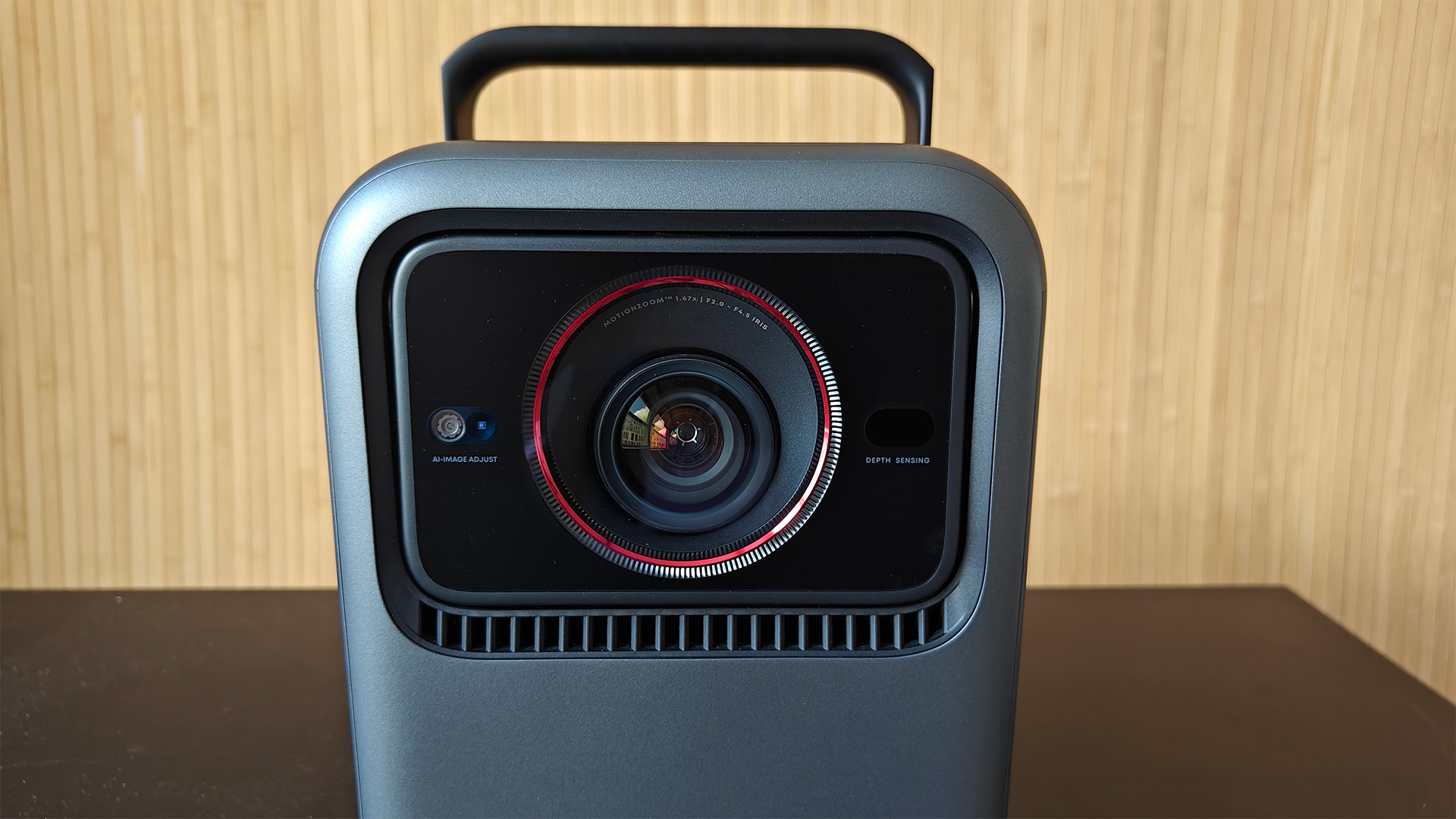
We kick off with Alien: Romulus via Disney+. As a spacecraft silently drifts through a floating wreckage, the Nebula X1 immediately shows off its impressive black levels as the enveloping blackness of space is inky and dark.
Twinkling stars contrast with the blackness, and their brightness successfully peeks through. The Movie picture mode certainly helps the image to feel cinematic too; as the ship passes through the debris, it has a good sense of three-dimensionality.
In terms of colour, the X1 keeps the picture vibrant and engaging. With the Antarctica episode of Seven Worlds, One Planet on 4K Blu-ray, the gentoo penguins preparing to dive into the ocean are detailed and vivid. Their bright red beaks and fluffy feathers look tangible and textured.
At times, the picture is actually a bit too sharp, with a slightly unnatural degree of enhancement creeping in. This can be solved by reducing the Sharpness a few points, which results in a more balanced picture that is still pleasantly crisp.
Moving to the more subtle palette of Oppenheimer on 4K Blu-ray, the Nebula X1 does start to struggle a little.
When Cillian Murphy’s Oppenheimer stands in front of a blackboard, there is a slight flickering on the white wall behind him. We have noticed this flicker with other projectors, but the X1 exaggerates it.
We also find that the rainbow effect, which is when you catch glimpses of coloured light out of the corner of your eye, is slightly more noticeable with the Nebula than with some rivals, including the BenQ X3100i.
There is a slight judder to motion from the X1, too. When Oppenheimer arrives at his new home with his family in a car, the swooping aerial shot feels slightly glitchy. What’s interesting is that this delivery of motion is a little inconsistent: we rewatch this scene numerous times, and the ratio of judder to smoothness varies on each watch.
The BenQ X3100i, by comparison, is consistently smooth in its delivery, and the flicker in the blackboard scene is much less noticeable.
Despite these flaws, the X1’s vibrant colour presentation and depth do provide an impressively immersive experience that feels cinematic.
Sound
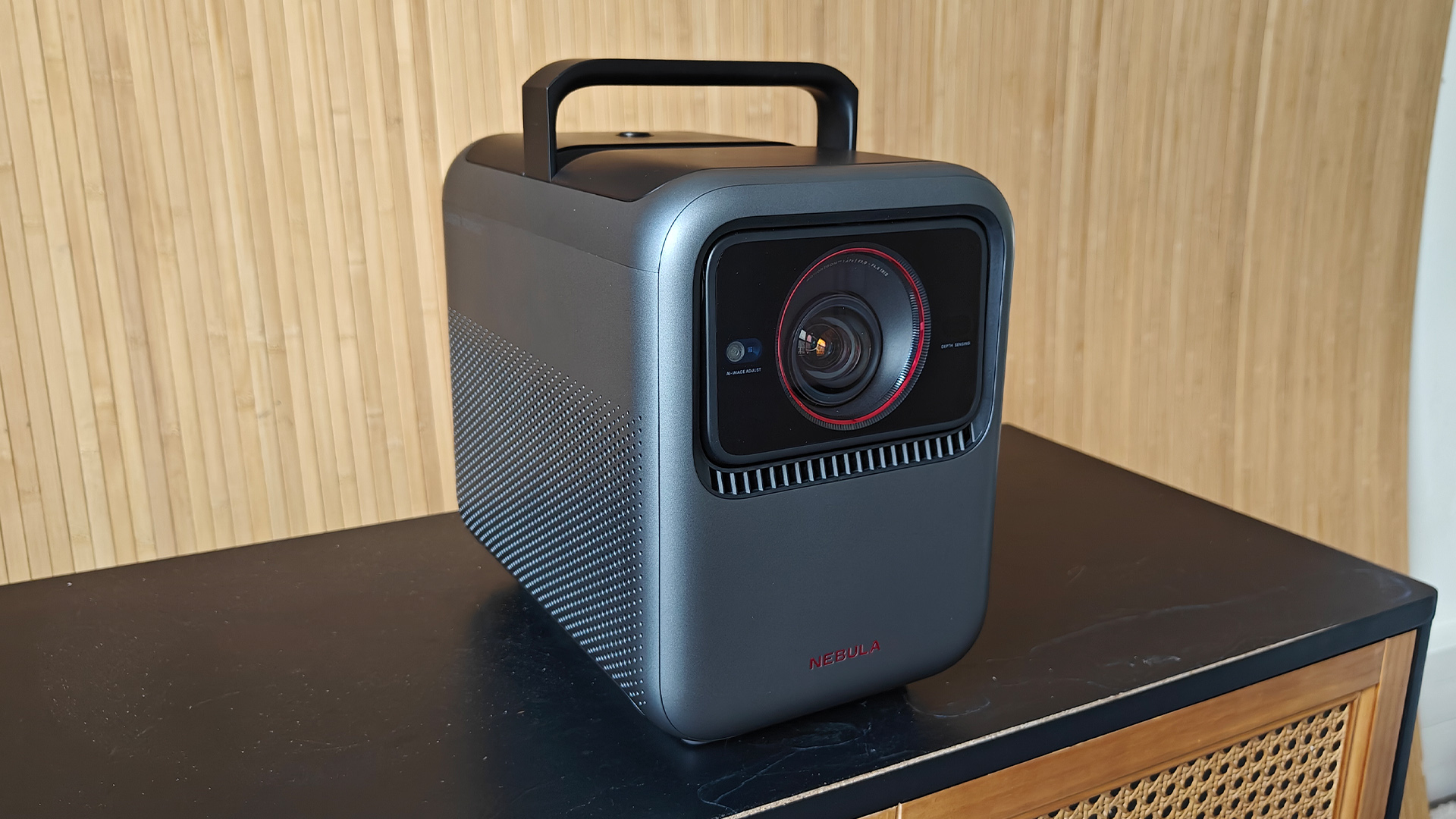
Many projectors tend to drop the ball when it comes to audio, but the Nebula X1 excels here. Even without the optional wireless speakers, the projector’s 2.1 speaker configuration manages to create a rich and detailed sound by projector standards.
When watching Thor: Ragnarok, the battle sequence between the villainous Hella and the Asgardian army feels weighty and gripping as you can feel every punch.
The dialogue is clearly audible even in busy scenes such as this, providing a balanced overall audio experience.
It is reasonably localised, so we do not get a huge sense of immersion, but this is impressive sound overall.
The BenQ X3100i, by comparison, sounds thin and much less impactful, especially in terms of vocal clarity. When it comes to sound, the Nebula X1 blows the competition out of the water.
We also test the X1 with the optional wireless speakers. These use Nebula’s own surround sound format, FlexWave, to create a sense of height along with the up-firing drivers.
The soundstage is immediately widened and upgraded, filling the room with detailed but immersive audio.
Verdict

The Nebula X1’s audio makes it stand out from the crowd, as it is rare we have found a projector that can pack such a punch in terms of bass.
Its slightly inconsistent picture performance is a shame, because when the projector is operating at its best, it is exceptionally detailed and three-dimensional.
If you are looking for a projector that offers a simple set-up, punchy picture and top-notch sound performance, then the Nebula X1 is a great contender.
SCORES
- Picture 4
- Sound 4
- Features 5
MORE:
Also consider the BenQ X3100i
Best projectors: budget, 4K and ultra-short-throw
Robyn Quick is a Staff Writer for What Hi Fi?. After graduating from Cardiff University with a postgraduate degree in magazine journalism, they have worked for a variety of film and culture publications. In their spare time, Robyn can be found playing board games too competitively, going on cinema trips and learning muay thai.
- Lewis EmpsonSenior Staff Writer
- Tom Parsons
You must confirm your public display name before commenting
Please logout and then login again, you will then be prompted to enter your display name.
